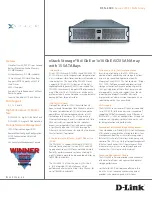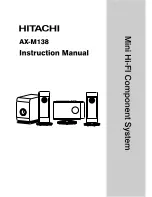
easyRAID Q16
Serial ATA Disk Array Systems
3
1
Ove
rview – Un
der
sta
ndi
ng RAID
Understanding RAID
Read this section to understand how to balance data availability, access rate, and capacity man-
agement needs.
NRAID
NRAID (Non-RAID) is an array that concatenates the space of all hard disks linearly and forms a
large, logical disk. The space presented by the NRAID array starts sequentially from the space of
the first member disk to the last member disk without striping, mirroring, or parity.
Just a Bunch Of Disks
Just a Bunch Of Disks (JBOD) consists of two or more disks that can be different sizes. Disk 1 is
completely filled, then disk 2, disk 3, and so on until the final disk is full.
The total capacity of JBOD is the sum of the capacities of each disk. Disks are added until the
desired total capacity is reached.
JBOD is used in the following situations:
• Building useful capacity from disks that are too small to be individually useful
• Making capacity management easier, since the user only sees one logical disk
JBOD doesn’t improve data availability or access rate when compared with a single disk.
RAID Levels
The overall arrangement of disks in RAID is called the RAID level. Read this section to under-
stand RAID levels.
RAID 0
In RAID 0, data is divided into pieces and written to all disks in parallel. This process is called
striping because the pieces of data form a stripe across multiple disks. This improves access rate,
Summary of Contents for ERQ16-U4R3
Page 2: ......
Page 4: ......
Page 6: ......
Page 20: ......
Page 40: ...Chap3 fm Page 30 Thursday September 29 2005 10 52 AM ...














































